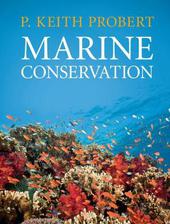
|
Marine Conservation
Hardback
Main Details
| Title |
Marine Conservation
|
| Authors and Contributors |
By (author) P. Keith Probert
|
| Physical Properties |
| Format:Hardback | | Pages:494 | | Dimensions(mm): Height 252,Width 193 |
|
| Category/Genre | Marine & freshwater mammals
Applied ecology
Conservation of the environment |
|---|
| ISBN/Barcode |
9780521326858
|
| Classifications | Dewey:333.95616 |
|---|
| Audience | | Professional & Vocational | |
|---|
| Illustrations |
30 Halftones, color; 95 Halftones, black and white; 32 Line drawings, black and white
|
|
Publishing Details |
| Publisher |
Cambridge University Press
|
| Imprint |
Cambridge University Press
|
| Publication Date |
6 July 2017 |
| Publication Country |
United Kingdom
|
Description
Providing a comprehensive account of marine conservation, this book examines human use and abuse of the world's seas and oceans and their marine life, and the various approaches to management and conservation. Healthy marine ecosystems - the goods and services that they provide - are of vital importance to human wellbeing. There is a pressing need for a global synthesis of marine conservation issues and approaches. This book covers conservation issues pertinent to major groups of marine organisms, such as sharks, marine turtles, seabirds and marine mammals; key habitats, from estuaries, wetlands and coral reefs to the deep sea; and from local and regional to international initiatives in marine conservation. An ideal resource for students, researchers and conservation professionals, the book pays appropriate attention to the underlying marine biology and oceanography and how human activities impact marine ecosystems, enabling the reader to fully understand the context of conservation action and its rationale.
Author Biography
Keith Probert, now retired, was Associate Professor in the Department of Marine Science at the University of Otago, New Zealand, where he taught marine biology and ecology. His research has mainly concerned the ecology of sediment benthos, including the effects of human activities and the implications for marine conservation.
|